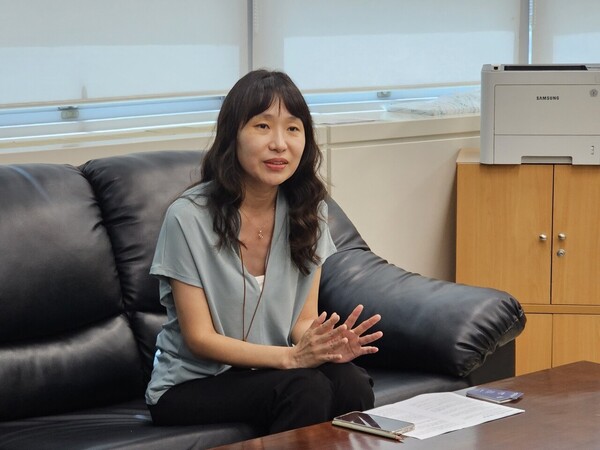
"Each country has different and complex food, medical and pharmaceutical regulations. Depending on whether they have a memorandum of understanding with foreign regulatory agencies, there is a big difference in information sharing and cooperation. Therefore, the Global Policy and Strategy for Food and Drug Division does its best to serve as a conduit to help Korean companies when they export or advance overseas."
Oh Young-jin, director of the Global Policy and Strategy for Food and Drug Division, said so while explaining the performance of the group over the past year and its future plans at a meeting with journalists covering the Ministry of Food and Drug Safety (MFDS) on Tuesday.
The division was launched in September last year to focus on establishing an organization for the international harmonization of related regulations. The government judged it necessary to launch a team exclusively responsible for this matter to help Korean companies’ overseas advance. Currently, 10 officials, including Oh, take charge of food, medicine, and medical devices.
The division plays a key role in the ministry’s flagship export support strategy, called the “GPS” -- an acronym for a “leap to Global leader,” “expanding international Partnerships,” and “export Supporter.”
As part of the GPS strategy, the division signed a memorandum of cooperation (MOC) with the U.S. Food and Drug Administration (FDA) on AI-based medical device products this past April. The following month, it launched the Asia-Pacific Food Regulators' Association (APFRAS). Korea was elected as the first chair country of APFRAS, and the ministry will open the secretariat in the country.
Signing GMP mutual recognition agreements (MRAs) for pharmaceutical products with foreign countries is also one of the group's achievements. The ministry is about to sign an MRA with Singapore. MRAs recognize the domestic inspections of signees and exempt national shipment approval, shortening the time for companies to prepare for export.
The group has also been planning the public-private drug export support group that visited Vietnam early this month. Oh attended a meeting with Vietnam's vice minister of health, a bilateral meeting with Vietnam's drug regulatory agency, and met with companies that want to enter Vietnam to explore ways for export to Vietnam.
"We organized the visit because there were many challenges for Korean companies in exporting to Vietnam. The food and drug safety ministry also requested us to communicate with the Vietnamese government actively. The timing was also significant as a follow-up to President Yook Suk Yeol’s state visit to Vietnam," Oh said.
Oh went on to say, “Previously, Korean medical devices experienced disadvantages in competitive bidding in Vietnam because of their low bidding status. There were many requests from domestic companies to resolve this issue, and the visit resulted in the abolition of the disadvantageous rating given to Korean companies.”
The division also plans to follow up on these meetings with foreign regulators. As part of the Vietnam project, a delegation from the Vietnamese government will visit Korea in September to meet with Korean companies. Next February, the group plans to organize a workshop on AI-based medical devices jointly with the FDA.
"In addition to the U.S. and Vietnam, we are working to strengthen our partnerships with other countries, including Singapore, Australia, Canada, and Saudi Arabia," Oh said. "We prioritize our collaborations based on corporate demand, market size, and regulatory capacity."
As the group was launched last year as an autonomous body, unresolved tasks remain, including formal organizing. According to Decree No. 213 of the MFDS, the basis for the establishment and operation of the group, the period of operation for the team is a maximum of six months and can be extended once. It will be officially institutionalized in the second half of this year when it celebrates its first anniversary.
"The team is like a newborn baby, but I think it has made a difference," Oh said, "We are pushing for its formal organizing in the second half of this year and will do our best to help companies export. So, please pay a lot of attention to us.”

